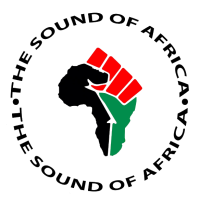How Does the Economy Affect Educational Opportunities?
When a country has a strong economy, the educational opportunities available to its citizens grow. Alternatively, the stronger the educational system, the more students (and graduates) become invested in contributing to economic development through their own entrepreneurship, job training and community involvement.
But make no mistake, a burgeoning economy plays a principal role in paving the way for educators to get more of the resources they need so that kids have better learning opportunities (and outcomes).
How does economy affect education worldwide?
Because the fate of learning institutions and schools are closely tied to governmental funding, the performance of a country’s economy can frankly make the difference between a bright future, or a lost generation.
Let’s explore a few of the ways the economy affects education.
Government spending on education and learning programs: Economic conditions directly impact the choices a government makes in spending and funding programs.
The funding of programs (or lack thereof) has a direct correlation to public poverty levels, especially for students who reside in the rural areas of countries. Conversely, when an economy is performing well, there tends to be more spending on programs that support social services and educational programs.
Educational institutions: Aside from educational programs, school systems themselves benefit (or suffer) when the economy is good or bad. The funding they receive from the government supports everything from infrastructure, to teacher salaries, to the school supplies that they provide to students.
But even when the economy is doing well, many schools (especially those in rural areas) still need resources and community involvement to adequately set students up for success. Often, that’s where nonprofit organizations can supplement schools with technology and training.
Did you know?
Kenya has rebounded well from the pandemic, with gross domestic product (GDP) growth. Their early grade mathematics assessments improved from 71% in 2016, to 80% in 2021 in secondary schools. The final secondary examinations (KCSE) performance improved from 11% in 2017 to 18% in 2021. According to the Kenya Economic Update report, these improvements resulted from sustained high spending on education.
Did you know?
Due to its fast growing economy Tanzania was recognised as a lower middle-income country in 2020, five years ahead of its projected schedule. According to Tanzanians and educationists alike, there is a common understanding that education has played a central role in the nation’s development economically.
When children have an engaged family at home and in school, their achievement soars and their educational outcomes grow.
Skills demand: Along with economic growth comes additional investment in innovative (and existing) industries – especially technology. As a result, new job opportunities open up across the spectrum for in-demand 21st century skills.
Educational institutions play a critical role in catering to the job demand these industries create. And they provide the kind of training young students need to enter today’s workforce and become entrepreneurs themselves.
Livelihood programs that help train students on employability and business enterprise creation strengthen what is offered in schools and play an empowering role in the community.
Inflation: Following the pandemic, the world’s economies have been affected by high inflation, which raises the cost of living across the board, including the affordability of education. Growing countries are hit especially hard.
The cost of school supplies, school clothes, food, and more can make the difference (particularly in rural communities) of a child being able to attend school or working to help support the family.
How to support education in the face of any economy
When looking at how the economy affects education it’s important to remember that the only economic constant is change. The world’s economies will continue to fluctuate with global circumstances such as war, climate, the banking industry, booms, busts and more.
With that in mind, we should examine just a few ways community-minded organizations support positive educational outcomes, exclusive of economic swings.
Digital learning initiatives: Digital skills such as understanding how to navigate the internet, coding, AI prompt writing and more are critical to success. It’s important to supplement school curriculum with digital programs (non profit, NGO or otherwise) that emphasize practical skills. For example, Asante Africa played a role in helping a young entrepreneur and single mother develop her digital skills to grow her boutique.
Teacher training: Teachers need all the support they can get. Through Asante Africa’s Accelerated Learning Program, teachers in rural East Africa are provided with the support and training they need to create engaging learning environments around digital literacy. By having teachers who are technologically skilled, student’s learning outcomes are bolstered.
Rose began as a volunteer (in the ALP) and eventually went on to acquire two technology based certificates. She’s now working with a private company as Head of Curriculum.
One of the pillars of our partnership focus is to align with advocacy groups who create change within the government structures. During 2023 World Literacy Day, UNESCO recognized Asante Africa’s commitment to advancing literacy through innovative educational initiatives.
Our efforts align with UNESCO in promoting literacy and creating inclusive, accessible education.
You can support initiatives that provide better educational opportunities to East African youth by donating to Asante Africa. Or, please donate to your chosen nonprofit organization working with East African youth.
WRITTEN BY: Christopher Bass



